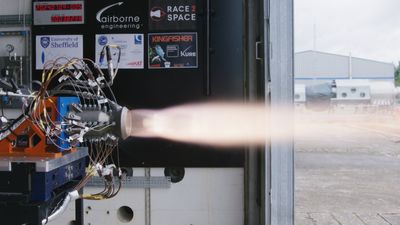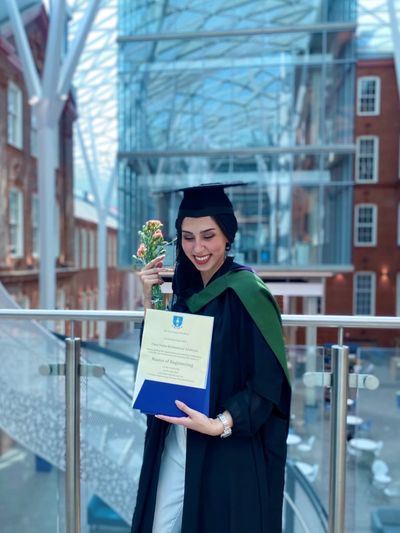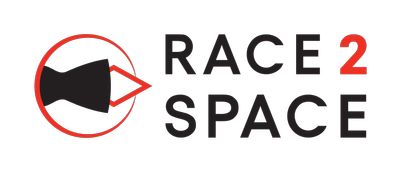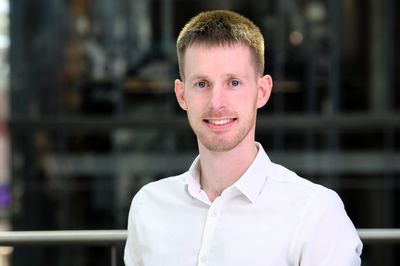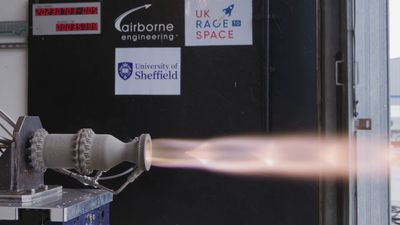UK’s Future Space Scientists Take Off in World’s Largest Rocket Firing Competition Finale
Published:
Read Time: 7 mins
WITH CASE STUDIES, IMAGES AND VIDEO
Over 300 students from 32 universities to test rocket engines at the Westcott Space Cluster in Buckinghamshire - the site of Britain’s Cold War rocket programme
With more than half of UK space companies reporting critical skills shortages, the Race2Space competition gives students hands-on experience the sector urgently needs
The competition also aims to tackle a lack of diversity, opening up space careers to women and other underrepresented groups across the UK
Some of the UK’s brightest young engineers will come together this month at the historic site of Britain’s Cold War rocket programme for the climax of the world’s largest rocket firing competition.
More than 300 students from 32 universities will gather at the Westcott Venture Park in Aylesbury, Bucks - now a thriving hub of the UK space sector - for the final stage of Race2Space, an education initiative supported by the Government’s UK Space Agency.
Between June 25 and July 11, teams will “hot-fire” (ignite) rocket engines which they have spent the last year designing and building from scratch. The tests will take place on repurposed Cold War-era test stands, now fully modernised to support live liquid-fuel rocket engine firings.
Race2Space is addressing two urgent challenges threatening the UK’s space ambitions: the critical skills gap and the sector’s lack of diversity. Britain’s space sector is valued at nearly £19 billion and employs more than 52,000 people - but over half of UK space companies report critical skills shortages, with many losing top talent to overseas competitors.
The problem is being compounded by lack of diversity - less than a third (29%) of those working in the UK space sector are women, and just 34% identify as non-white.
Race2Space gives university students the opportunity to tackle complex, real-world engineering challenges that traditional academic courses rarely provide. helping to create a pipeline of “industry ready” rocket engineers.
The programme also works to build a more diverse and inclusive space sector by actively encouraging applications from underrepresented groups and universities nationwide. Dr. Alistair John, Programme Lead for Aerospace Engineering at the University of Sheffield, and Co-founder of Race2Space, said the UK space sector urgently needed a new generation of highly-skilled engineers
“There’s no shortage of talent in Britain, but if the UK wants to lead in the global space race, we need more graduates with real-world, hands-on experience,” he said. “Race2Space gives students exciting opportunities to work on complex, real-life challenges, often for the first time, helping to create a pipeline of ‘job-ready’’ graduates which the sector so desperately needs.”
He added: “The UK can’t afford to overlook untapped potential. With women making up just 29% of the UK space workforce and significant underrepresentation among ethnic minorities and those from disadvantaged backgrounds, the sector is missing out on a vast reservoir of talent. We’re working to change that by creating accessible, practical opportunities for students of all backgrounds to enter and thrive in one of the UK’s fastest-growing high-tech industries.”
ProtoLaunch, a propulsion engineering company based at Westcott, will provide students with access to professional test facilities. The company has already hired two Race2Space participants over the past two years after observing their practical and problem-solving skills.
“For us, Race2Space is better than any interview,” said Matt Escott, its founder. “We get to see students use tools, troubleshoot their own hardware and explain their engineering under pressure. It’s the ultimate testbed for talent.
“It’s so important that we give students hands-on experience. If we don’t build the talent pipeline, we’ll just keep recycling the same engineers between companies, which is not a good recipe for the innovation we need to compete in the space race.”
Andrew Ratcliffe, Chief Engineer at the UK Space Agency, said: “Race2Space is a fantastic example of how hands-on learning can equip students with the skills and confidence to contribute meaningfully to the UK’s thriving space sector.
“By supporting opportunities to design, develop and test real rocket engines, the UK Space Agency is helping bridge the gap between academic study and industrial application. This kind of practical experience is key to inspiring the next generation and helping young people from all backgrounds see a future for themselves in space.”
The competition will showcase student innovation across three propulsion categories - liquid, hybrid, and aerospike, with awards given for technical performance, team spirit and innovation.
Winners will be announced at the Race2Space Symposium at the Westcott Space Cluster on July 11, a networking event bringing together academics, government and space industry leaders.
Ends
Editors notes
Case studies: Carrie Waters
She is part of the university rocket team testing their engine at the Westcott Venture park on July 1.
Carrie Waters, 18, a first-year Physics student at Durham University, has spent the past year helping to build a powerful, 600kg thrust liquid-fuel rocket engine. She is a member of Durham University Spaceflight, a student-run rocket launching team competing in this year’s Race2Space competition.
The team’s months of hard work will be put to the test next month, when they “hot fire” their engine at the Westcott Space Cluster during the final stage of the competition. In this crucial test, the engine will be securely mounted and ignited horizontally while connected to pressurised fuel systems., the engine must prove it can perform under extreme conditions - delivering the correct thrust, flow rates and structural integrity., before being launched as part of a future rocket.
“I’m really excited,” says Carrie. “I’ve never done anything like this before. I can’t wait to see whether what we’ve designed and built actually works. It’s very daunting. I’ve had such a great time working with the team and I’ve learnt so much.”
The learning curve has been steep, but rewarding. Carrie has gained valuable hands-on experience in systems optimisation, thermal control and engineering teamwork.
Her interest in rocket engines began in Year 7, when she launched a paper rocket from an air cannon during a science lesson.
“We added paperclips to the nose cone and it went further. I was completely bamboozled,” she says. “That’s when I got curious about how rockets really work.”
For Carrie, the technical challenge is only part of what makes Race2Space so enjoyable.
“It might sound like a cliché, but the best part has honestly been the team. I’ve made great friends, and learning together has made the experience even more special.”
Raised in North East London, Carrie believes that initiatives like Race2Space are vital for helping students from all backgrounds turn academic learning into career opportunities. She hopes to one day work for organisations like Skyrora or the European Space Agency, contributing to cutting-edge rocket and satellite missions.
Case study: Dana Arabiyat
Dana Arabiyat, 25, took part in Race2Space whilst she was studying Aerospace Engineering at the University of Sheffield. Having graduated in 2022 and now working at Rolls Royce as a systems design engineer, Dana says taking part in the competition is a highlight in her career so far.
Dana, who grew up in Jordan and is now based in Derby, was part of a team that designed and built Sunfire II - the first student-made engine to use regenerative cooling in the UK and the UK’s first student-made engine that used additive manufacture.
The Sunfire team went on to set the record for the most powerful student-built bi-propellant liquid rocket engine test in the UK.
Dana said: “Sunfire II will always be the highlight of my journey, as it’s something we worked on that manifested into the first hot fire of a 3D printed engine by students in the UK. Having worked on the combustion chamber for that engine as part of a team where each of us worked on a different part, it directed my career towards fuels, combustion, and systems engineering.”
About Race2Space
Race2Space is an educational initiative designed to inspire the next generation of space engineers through a national propulsion competition. Supported by the UK Space Agency, it supports final-year university students from across the UK to design, build, and hot-fire liquid or hybrid rocket engines from test stands at Westcott Space Cluster in Buckinghamshire.
Students work on designing and manufacturing their engines throughout the academic year, and then test them over two weeks at the Westcott Space Cluster, between June 25 and July 11. The competition culminates on July 11 at the Race2Space Symposium, an education and networking event that brings together academics, students, government and industry professionals to celebrate innovation and showcase the competition’s results.
For more information visit https://race2space.org.uk/
Contact: Nicole Martin
+44 7768 695087
media@dogoodpr.co.uk

